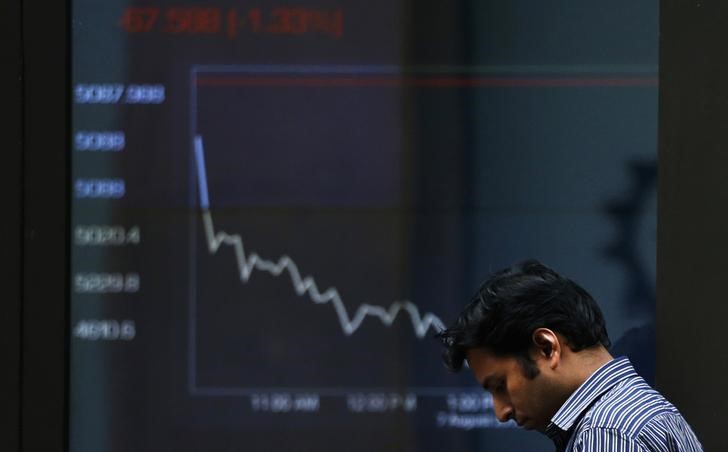This post was originally published on this site

Investing.com– Most Asian stock markets rose on Friday, tracking an extended recovery in Wall Street as the dollar and Treasury yields came off recent highs.
But hawkish signals from the Federal Reserve kept broader gains capped, as investors priced in an over 85% chance that the central bank will raise interest rates by 75 basis points in September.
Still, a strong lead-in from Wall Street put most regional markets on track for weekly gains.
China’s Shanghai Shenzhen CSI 300 bluechip index rose 1.1%, while the Shanghai Composite index added 0.7% after substantially weaker-than-expected inflation readings for August drove up expectations of more stimulus measures by the Chinese government.
Beijing has already promised to increase spending in the third quarter, as Chinese economic growth slowed to a crawl this year due to continued COVID-related lockdowns.
The Chinese stock indexes were set to gain 1.4% and 2.2% for the week, breaking a three-week losing streak.
Hong Kong’s technology-heavy Hang Seng index was the best performer for the day, jumping 2.5% as easing yields benefited major tech stocks. The BATs trio- Baidu (HK:9888), Alibaba Group Holding Ltd (HK:9988), and Tencent Holdings Ltd (HK:0700), rose between 1.7% and 4%.
But losses in Tencent earlier this week, amid speculation over a share sale by a major stakeholder, put the Hang Seng on course for a 0.6% weekly loss.
In the Asia-Pacific region, Australia’s S&P/ASX 200 rose 0.5%, and was also on course to break a two-week losing streak. Major miners BHP Group Ltd (ASX:BHP) and Rio Tinto Ltd (ASX:RIO) were among the biggest boosts to the index, rising over 2% in tandem with copper prices. Rates of the red metal surged overnight on the prospect of tighter supply stemming from a strike at Escondida, the world’s largest copper mine.
Data earlier this week showed Australia’s economy continued to expand in the second quarter, albeit at a slightly lesser-than-expected pace. But Australian trading activity slumped in July, amid a slowdown in major partner China.
Despite the week’s gains, most Asian markets are nursing steep losses this year, as rising interest rates in the United States pressured most global stock markets.
Fed Chair Jerome Powell reiterated the central bank’s hawkish stance on Thursday, stating that strong action was needed to combat inflation. An increased pace of rate hikes by the Fed is likely to weigh on stock markets this year.

